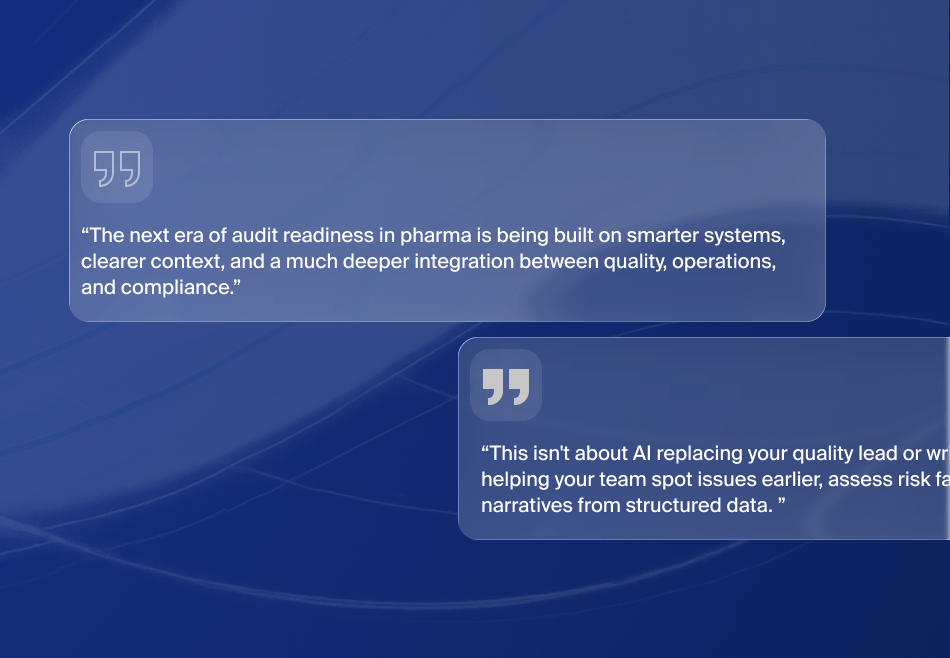At a Glance
- Quantifying progress is important for any industry to know they’re on the right path. The chemical industry should focus on specific KPIs to measure its growth and to make sure it is moving in the right direction.
- Continuous improvement is important, understanding which KPIs to focus on will ensure that companies are able to assess their performance and make adjustments wherever necessary.
- KPIs should be communicated by upper management so that employees fully understand their tasks and everybody has a clear set of goals.
- While the chemical industry might be seen as having fairly standard KPIs, it’s essential to understand that every company is different and will likely focus on different information.
The chemical industry has always operated within certain conventional settings and boundaries. With digital technology advancing so quickly, however, more and more chemical companies are thinking outside of the box in an effort to become more agile. These thought leaders are looking for better ways to quantify their manufacturing KPIs, generate insights and boost revenue.
According to the American Chemical Council (ACC), the US economy is expected to grow by up to 3.7% in 2021 and that chemical production will rise by as much as 3.9%. With this kind of growth expected, it’s more important than ever for chemical manufacturing and distribution companies to recognize and prioritize the most important KPIs for the chemical industry. While every performance marker is important there are a few KPIs that can have a greater impact on the overall production and aftermarket aspect of the business. C-level executives from these companies need to look closely at which performance measures make the most sense for them. Below are 4 KPIs in the chemical industry that could have a huge impact on a business’s bottom line.
1.Operational KPIs
It’s important to be able to measure the operational performance against benchmarks to achieve the desired results in manufacturing, including both quality and maintenance. Measuring important KPIs like scheduled uptime vs. total scheduled operational time lets organizations to calculate things like manufacturing schedule compliance, percentage of quality compliant products, and production rate per product type against the planned demand. This helps organizations achieve a high Overall Equipment Effectiveness(OEE) and optimize costs.
2.Regulatory KPIs
Adherence to local and global regulations is one thing chemical companies should never compromise on. KPIs for regulation compliance enable chemical manufacturing companies to record, measure and maintain records required for various rules and requirements. It’s imperative for chemical companies to set up and follow KPIs related to Regulatory Affairs (RA) in order to determine the long-term efficiency of their compliance processes.
Figure: 1 Primary Areas with Impactful KPIs: Chemical Industry
3.Inventory Utilization KPIs
While maintaining higher than usual inventory levels adds to overall costs, stock-outs can create even greater bottlenecks in production. This is the main reason it’s so important to maintain optimal inventory levels. Adhering to throughput rate and buffer levels can help chemical companies consistently achieve the inventory levels required to keep production going without increased inventory costs. Inventory KPIs also help in maintaining consistent inventory turnover rates.
4.Customer Experience KPIs
This measurement is now growing extremely popular in every industry, including chemical. More and more companies are looking to connect directly with their end-users in order to understand buying habits, trends, and ultimately determine what their customers want. This lets companies focus on producing the right products for their target markets.
Bonus – Environmental impact and sustainability KPIs
A lot of conventional chemical manufacturing methods and processes are still highly resource-intensive, with the potential to cause serious damage to the environment. Moving forward, chemical companies need to research and invest in greener, more sustainable models of working. This can be achieved by setting up KPIs and ensuring proper governance.
According to their website, BASF (the largest chemical producer globally) has the goal of growing CO2 neutrally until 2030.
Similarly, the Dow Chemical Company has plans to stop the waste by 2030, by enabling 1 million metric tons of plastic to be collected, reused, or recycled through its direct actions and partnerships. The company invests and collaborates with partners who have similar interests and can provide infrastructure and technologies to accelerate global recycling.
Focusing on these performance markers and goals not only helps in showcasing strategies for chemical companies to go greener but can also set an organization on a much shorter path to success. By protecting the environment and offering a better customer experience, along with producing and managing products much more efficiently will help companies in this sector achieve new heights.
Key Takeaways
- Utilizing customer experience KPIs can help companies better understand their customers’ buying habits along with market demand and the impact of their efforts.
- Chemical manufacturers need to set up KPIs not just for the production chain, but the entire lifecycle- from procurement of raw material to end-user.
- Organizations need to be more conscious of resources and the impact on the environment. Chemical companies are taking note of this and the right step in this direction is to set up environmental goals and KPIs.
Planning on restructuring your chemical operations for streamlined processes? Get a assessment with XcelPros!









